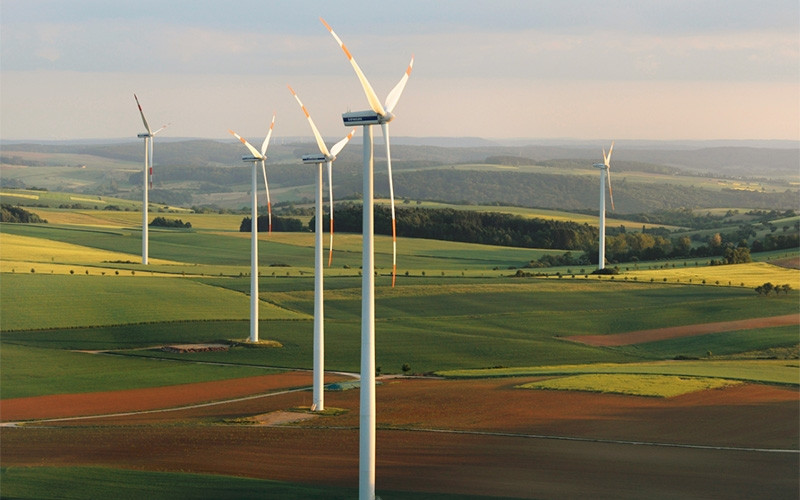In the context of Europe’s efforts to reduce its dependence on energy supplies from Russia, developments in the energy market in recent months, especially in the “old continent”, have once again demonstrated the crucial role of renewable energy in improving energy security, in addition to contributing to emissions reductions.
Despite tightened supply, delayed construction activities and soaring material prices, a record 295 gigawatts of renewable electricity capacity was generated in 2021. The IEA expects the world will produce an additional 320 gigawatts of renewable electricity this year, equivalent to the entire electricity demand of Germany or the total electricity capacity of the European Union (EU) currently produced from natural gas.
The additional renewable energy capacity for 2022 and 2023 is expected to significantly reduce the EU’s dependence on Russian gas in the power sector. However, the real contribution will depend on the success of energy efficiency measures to keep the region’s energy needs under control.
In the context of potential outbreaks of energy supply crises and global efforts to combat climate change, the United Nations has published an energy action plan aimed at providing clean and affordable energy for everyone by 2030.
Spokesperson for the UN Secretary-General, Stephane Dujarric, said that the plan sets out a common agenda of action to achieve commitments made at the High-Level Dialogue on Energy held in September 2021, including increasing access to electricity for an additional 500 million people, ensuring an additional 1 billion people have clean cooking methods, and generating 30 million jobs in renewable energy and energy efficiency by 2025.
Clean and affordable energy by 2030 is seen as key to addressing the climate emergency and bringing net emissions to zero by 2050. Meanwhile, the US Special Presidential Envoy for Climate John Kerry said the conflict in Ukraine shows it is time to accelerate the transition to a future with clean and independent energy sources.
The European Commission (EC) will propose a number of regulations requiring countries to designate certain land or sea locations suitable for the exploitation of renewable energy, given the environmental impact of projects to these areas is very low, in order to accelerate the EU’s green transition and reduce dependence on Russian fuel. These sites must avoid conservation areas or bird migration routes, and preferably be areas with already developed infrastructure such as roads, railways, industrial parks and surrounding public lands.
Through the new regulations, the EC has highlighted the important role of renewable energy sources in combating climate change, lowering energy prices, reducing the EU’s dependence on fossil fuels and ensuring supply security for the block.
In the Americas, Colombia recently inaugurated the La Loma solar power plant, the largest photovoltaic project ever in this South American country with a design capacity of more than 180 MW. With an investment of 126 million USD and more than 400,000 solar panels, the project is expected to make a significant contribution to the national electricity grid and create hundreds of jobs for workers in rural areas of North of El Paso, where the plant is located. Colombia is determined to reduce its greenhouse gas emissions by 51% by 2030 and become a carbon neutral country by 2050.
In Oceania, Australian Prime Minister Scott Morrison announced a 158.4 million USD investment to develop a clean energy industry and increase carbon storage in Western Australia. About 100.8 million USD of the total will be used to expand two hydrogen production hubs, including the Pilbara centre in the north of Western Australia and Kwinana in the city of Perth.
An Energy Compact Action Network was also launched to match those governments seeking support for their clean energy goals with those governments and businesses that have pledged over 600 billion USD to support these commitments. IEA Executive Director Fatih Birol called on governments to promote the licensing of and launch initiatives for faster implementation of renewable energy projects in the context that energy diversification and transition to clean energy is an inevitable trend of the future.
















